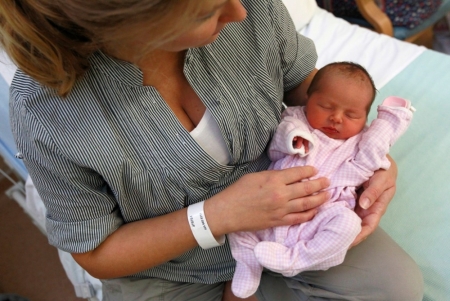Church of England Speaks Out Against '3-Parent Babies' by DNA Replacement as UK MPs Vote on Controversial Issue

The Church of England has spoken out against a bill that British MPs are getting set to vote on which would allow "three-parent babies" to be born from DNA replacement.
"The Archbishops Council, which monitors this issue, does not feel that there has been sufficient scientific study or informed consultation into the ethics, safety and efficacy of mitochondria transfer," Rev. Brendan McCarthy, the Church of England's national adviser on medical ethics, said.
"Without a clearer picture of the role mitochondria play in the transfer of hereditary characteristics, the Church does not feel it would be responsible to change the law at this time."
The Daily Telegraph noted that the bill concerns the Human Fertilisation and Embryology Act 2008, which would allow healthy DNA from a female donor to replace an egg's defective mitochondrial DNA.
The effort is aimed at preventing children from inheriting conditions such as muscular dystrophy, and could help the nearly 2,500 British women with such genetic mutations in their DNA.
The Church of England has said that embryo research aimed at helping children is acceptable, but said that more discussion on the issue will be needed.
"The House is going to in due course have to consider some difficult issues both about start of life and end of life. The Church of England accepts that embryo research is permissible if it's undertaken to alleviate human suffering," said Sir Tony Baldry, speaking for the Anglican Church in the House of Commons.
"But there are concerns that there has been insufficient scientific study or informed consultation into the ethics of mitochondria transfer, not least the role mitochondria play in the transfer of hereditary characteristics."
If the bill gets enough votes, then the first human trials could begin by October, with the "three-parent babies" being born in 2016.
The Church of England notes on its website that its attitude toward issues of human fertilization and embryology has "evolved" over the decades.
"The development of medical techniques for assisting conception has led Christians to think carefully about the connections (moral rather than scientific) between marriage, sexual intercourse, conception, birth and the nurturing and parenting of children," the statement reads.
In 1997, the General Synod said in a motion: "That this Synod, believing that children are a gift from God in creation and that the welfare of any child created by third party donation of eggs or sperm is of overriding importance, including the need of the child for a father."






















